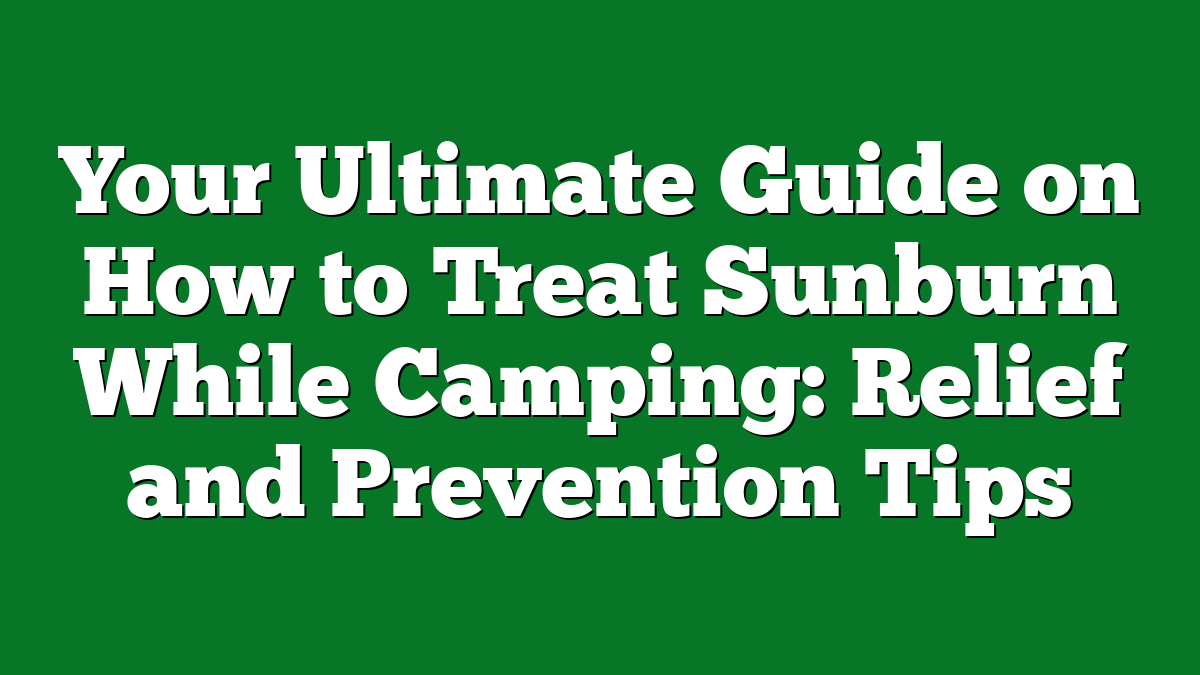There’s something magical about hitting the open road in an RV, surrounded by nature and the promise of adventure. But as I’ve learned, enjoying the great outdoors doesn’t mean we have to leave a heavy footprint behind. Sustainable RV camping is all about finding that perfect balance between exploration and environmental responsibility.
Overview of Sustainable RV Camping
Sustainable RV camping combines my love for the great outdoors with a commitment to protecting it. It allows me to indulge in my passions for camping, hiking, hunting, fishing, and surviving in the wild while minimizing my environmental impact. By following sustainable practices, I can enjoy the beauty of nature while ensuring it remains unspoiled for future generations.
Sustainable RV camping involves several key practices. First, I choose campgrounds that prioritize sustainability and conservation efforts. Many sites employ eco-friendly initiatives, such as using renewable energy sources and managing waste responsibly. Next, I focus on conserving resources. This includes using solar panels for electricity, conserving water while showering and washing dishes, and using biodegradable soaps.
I also make it a point to leave no trace while camping. This means following the seven Leave No Trace principles, such as packing out my trash, staying on marked trails, and minimizing campfire impacts. Staying respectful of wildlife is vital too. By observing animals from afar and not feeding them, I contribute to their natural behaviors.
Finally, I support local businesses whenever possible. Whether buying fishing supplies or local produce, this approach boosts local economies and reduces my carbon footprint. Sustainable RV camping allows me to immerse myself in nature while ensuring the environment stays pristine for years to come.
Benefits of Sustainable RV Camping
Sustainable RV camping offers numerous advantages that enhance the outdoor experience. I’ve found that it not only protects the environment but also benefits campers economically and socially. Here’s a closer look at these benefits.
Environmental Impact
Sustainable RV camping significantly reduces the negative effects on nature. I prioritize choosing campgrounds that prioritize eco-friendly practices, which helps preserve habitats. By utilizing solar energy, I decrease reliance on non-renewable power sources. Water conservation techniques—such as collecting rainwater and using efficient fixtures—play a vital role in minimizing resource depletion. Following Leave No Trace principles ensures that I respect the natural world, leaving it as I found it. When I witness pristine forests, clear rivers, and thriving wildlife, I know my sustainable choices contribute to their preservation.
Economic Advantages
Sustainable RV camping also provides economic benefits. I find that many eco-friendly campgrounds offer competitive rates compared to traditional sites. Supporting local businesses, such as farmers’ markets or family-owned establishments, during my travels keeps my dollars circulating within the community. Additionally, using renewable energy sources and conserving water can lead to lower utility costs while camping. By adopting sustainable practices, I maximize my outdoor adventure without breaking the bank.
Essential Gear for Sustainable RV Camping
Sustainable RV camping thrives on having the right gear. I’ve found that choosing eco-friendly options and sustainable accessories transforms my outdoor adventures while minimizing my environmental footprint.
Eco-Friendly RV Options
Choosing an eco-friendly RV can enhance your camping experience. I prefer RVs with energy-efficient appliances, which lower energy consumption. Look for models equipped with solar panels; they harness renewable energy to power your devices and lights. Many brands now offer lightweight designs that improve fuel efficiency, which means less fuel burned on the road. Additionally, consider opting for RVs that use sustainable materials, like recycled or non-toxic components. These vehicles help reduce the overall environmental impact while still providing comfort in the great outdoors.
Sustainable Accessories
Sustainable accessories make a significant difference in your RV camping adventure. I always pack reusable items to limit waste. Reusable plates, utensils, and cups reduce my reliance on single-use plastics. I often bring a portable water filter or water bottles to ensure access to clean drinking water without buying bottled water. Solar-powered lights become my go-to for nighttime illumination; they’re efficient, eco-friendly, and add a charming glow to my campsite. Compact, energy-efficient camping stoves also come in handy for preparing meals while minimizing fuel usage. By choosing these accessories, I enjoy the convenience of modern camping while staying committed to sustainability.
Tips for Practicing Sustainability While Camping
Sustainable camping becomes second nature with a few simple practices. I focus on waste management and energy efficiency, which significantly enhance my outdoor experience.
Waste Management
I always pack out what I pack in, keeping campsites clean and minimizing my impact. Using reusable containers reduces single-use plastics and helps manage food waste. I separate recyclables, compost organic scraps, and dispose of hazardous materials in designated areas. It’s essential to leave no trace, ensuring nature remains intact for future campers. Wherever I go, I scout for eco-friendly disposal stations. If there aren’t any, I take everything home to dispose of it properly.
Energy Efficiency
I prioritize energy efficiency while camper-ing to reduce my footprint. I rely on solar panels, which power my RV with clean energy. Turning off unnecessary lights and appliances extends battery life and conserves energy. I also use energy-efficient appliances whenever possible, choosing LED lights and low-energy camping gear. By harnessing natural light during the day, I often avoid turning on lights altogether, saving resources. Utilizing propane-powered stoves and heaters helps conserve electricity and keeps my setup efficient. Every little bit counts, so I focus on maximizing my energy use throughout my outdoor adventures.
Choosing the Right Campsite
Selecting the perfect campsite enhances the RV camping experience. Prioritizing eco-friendliness ensures the natural beauty remains intact for future adventurers.
Eco-Conscious Campsites
I focus on eco-conscious campsites that prioritize sustainability. Many campgrounds offer green certifications, signifying commitment to environmental practices. I look for sites that minimize resource use, feature renewable energy, and preserve local habitats. Options like state parks and community campgrounds often emphasize sustainable practices. Researching online reviews helps in finding sites that support conservation efforts and showcase a commitment to the environment. Look for campgrounds that implement green initiatives, such as composting toilets, recycling programs, and organic landscaping, to truly embrace sustainable camping.
Leave No Trace Principles
I always follow Leave No Trace principles when camping, which guides me in preserving natural spaces. The seven core principles include:
- Plan ahead and prepare: Ensure I have the necessary supplies and knowledge to leave no impact.
- Travel and camp on durable surfaces: Stick to established roads, trails, and campsites to protect vegetation.
- Dispose of waste properly: Pack out all trash, leftover food, and waste. I also consider using biodegradable soap.
- Leave what I find: I take only photos and leave the natural surroundings undisturbed.
- Minimize campfire impact: I use a camp stove for cooking and adhere to fire restrictions.
- Respect wildlife: Observing animals from a distance helps maintain their natural behavior.
- Be considerate of other visitors: I keep noise levels down and respect fellow campers’ experience.
Adhering to these principles makes my camping experiences not only enjoyable but more responsible.
Conclusion
Sustainable RV camping is all about enjoying the great outdoors while being kind to our planet. By making conscious choices and embracing eco-friendly practices, I can explore nature without leaving a heavy footprint.
It’s rewarding to know that my adventures can support local communities and protect the beautiful landscapes I love. With the right gear and a commitment to sustainability, I can create lasting memories while ensuring future generations can enjoy these wonders too.
So here’s to many more eco-friendly camping trips ahead. Let’s keep the spirit of adventure alive while caring for the environment we cherish. Happy camping!











